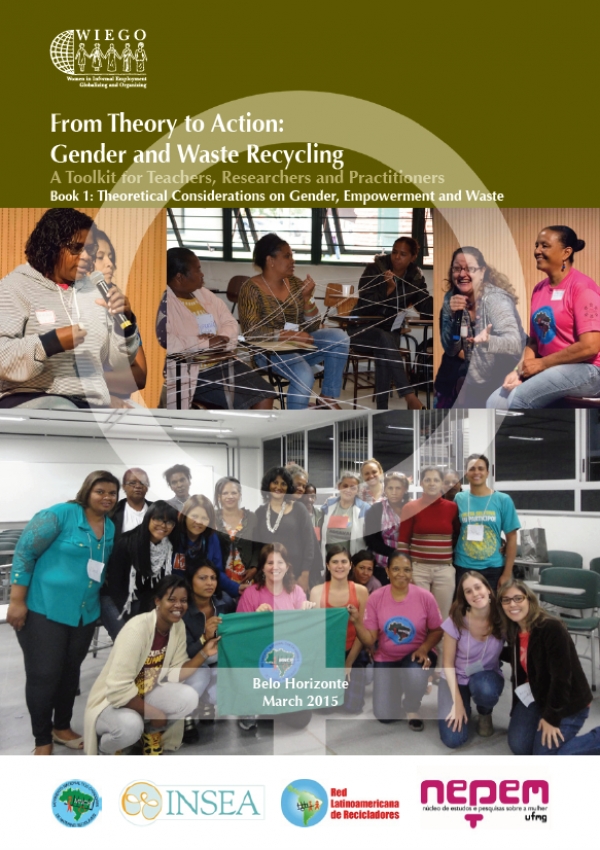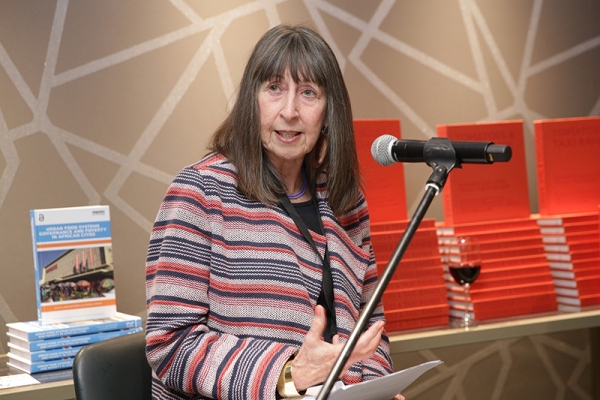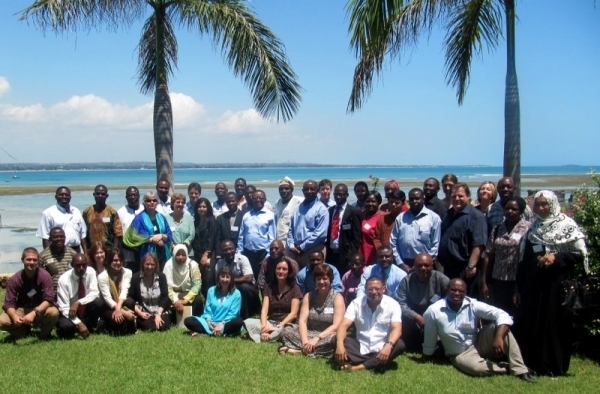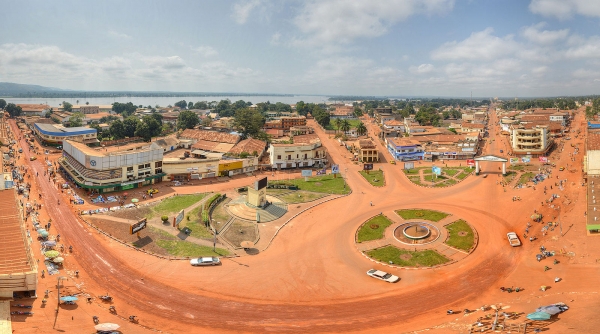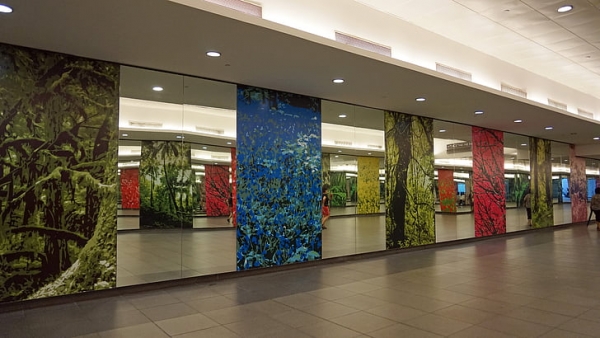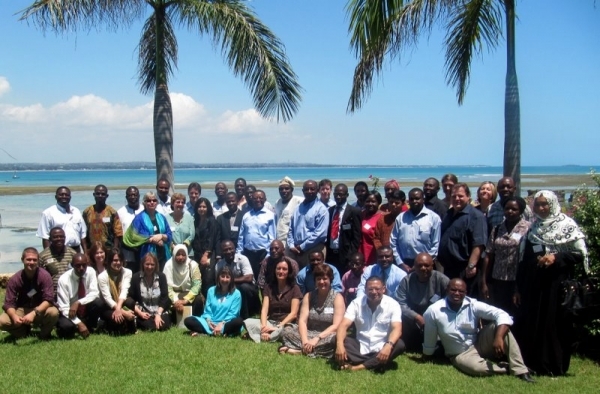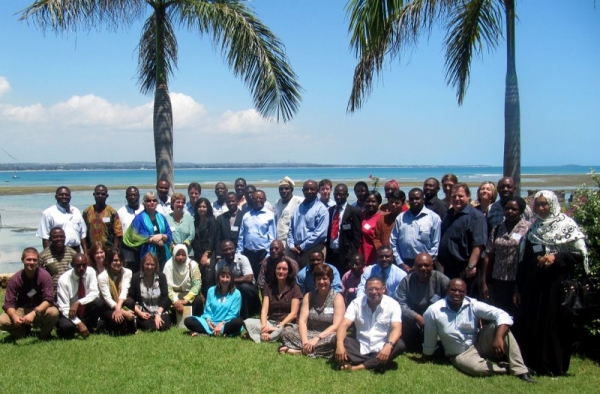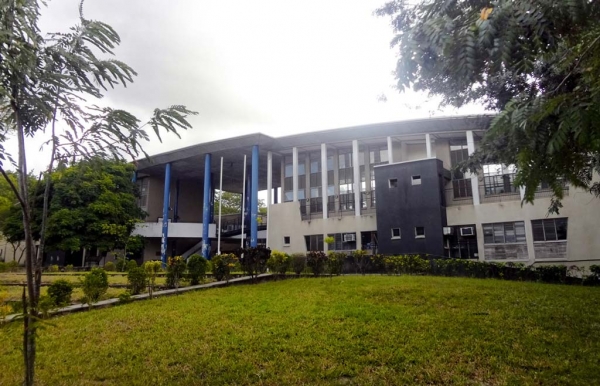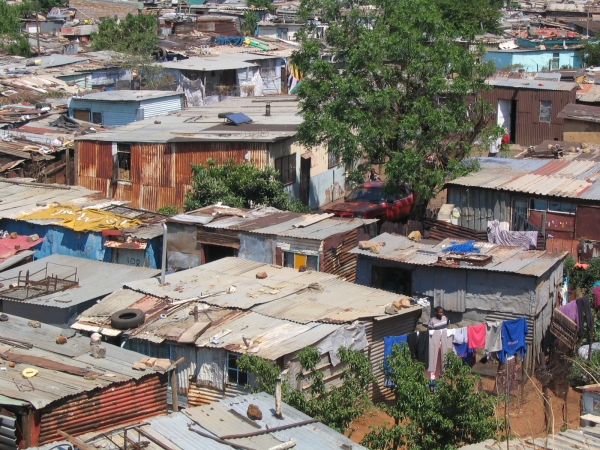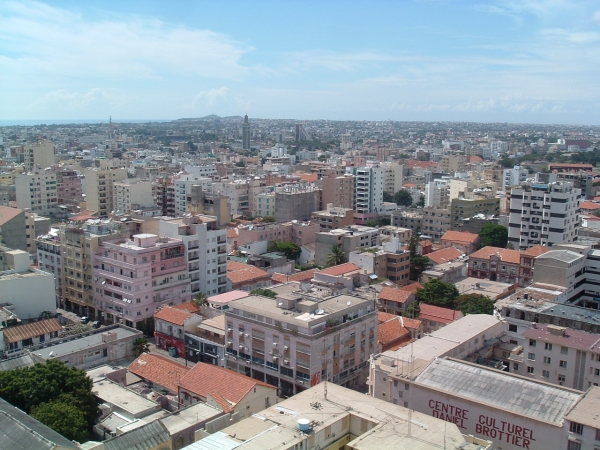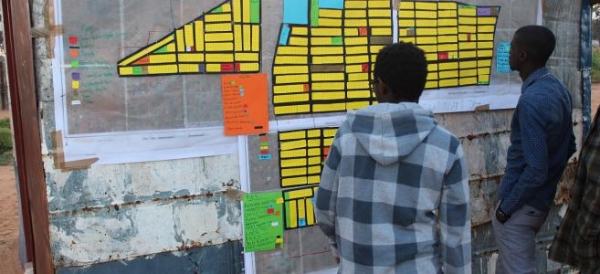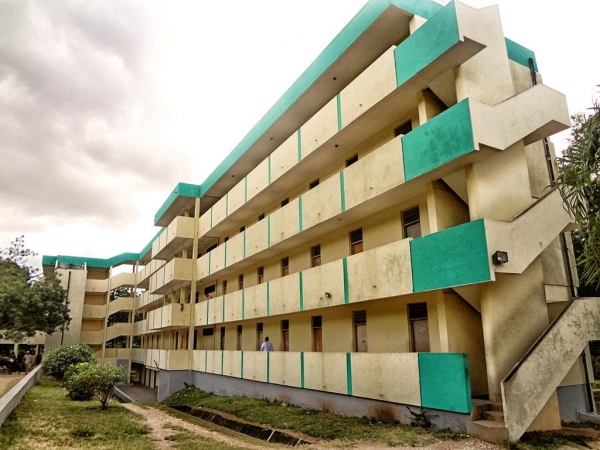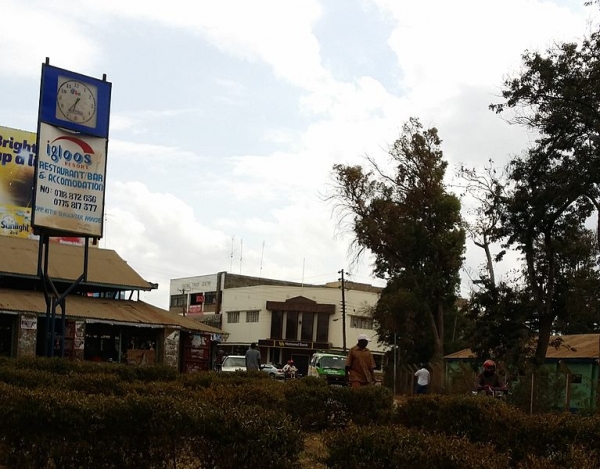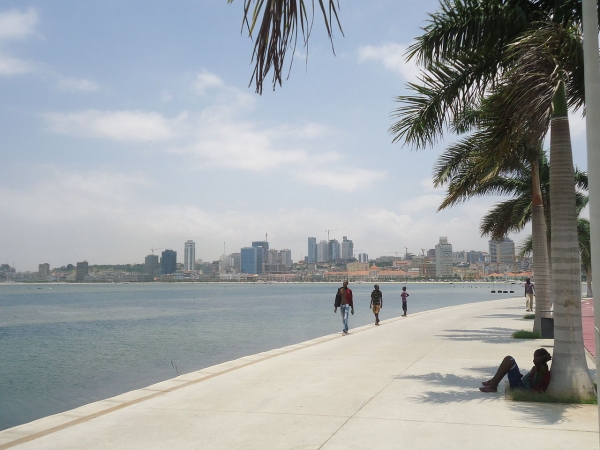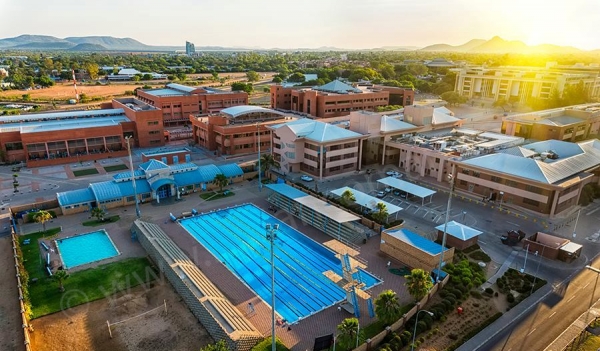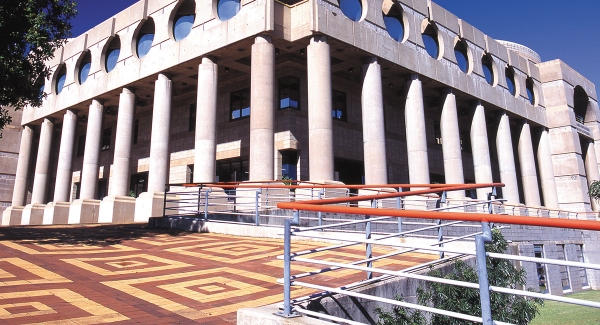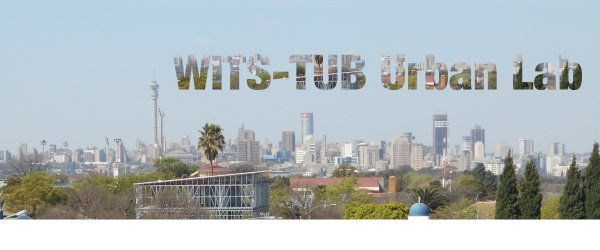The international advocacy network Women in Informal Employment: Globalizing and Organizing (WIEGO) has released From Theory to Action: Gender and Waste Recycling: A Toolkit for Teachers, Researchers and Practitioners.
As part of WIEGO’s Waste and Gender Project, this academic/practitioner toolkit was developed for a broad audience interested in understanding the connections between gender inequalities in the waste sector. It was written by WIEGO’s Sector Specialist Sonia Maria Dias and Ana Carolina Ogando, an independent consultant.
There are three books, available in English, Spanish, and Portuguese, along with pullout exercises from workshops conducted with women waste pickers on gender and waste.
While academic studies increasingly focus on waste picking and solid waste management, including the threats and risks faced by informal recyclers, there is still a gap when it comes to understanding the gender dynamics and sexual division of labour involved in waste picking activities. The Gender and Waste Project, undertaken from 2012 to 2015, sought to fill this gap by working closely with women waste pickers in Minas Gerais, Brazil, in a horizontal and participatory process. The aim of the exploratory action-research project was to understand women’s concerns regarding gender inequality in their workplaces, homes, and within the national movement of waste pickers.
Preceded by a popular toolkit, which seeks to engage waste workers by introducing key gender inequality issues, this toolkit includes the following:
- Identification of the conceptual issues related to gender and waste;
- Provision of a framework for other bodies interested in gender and waste issues to hold activities in structured workshops and participant reflections; and
- Additional resources, including a list of reviews of academic literature, guides, and videos on gender and waste.
You may access the toolkit by clicking here.

